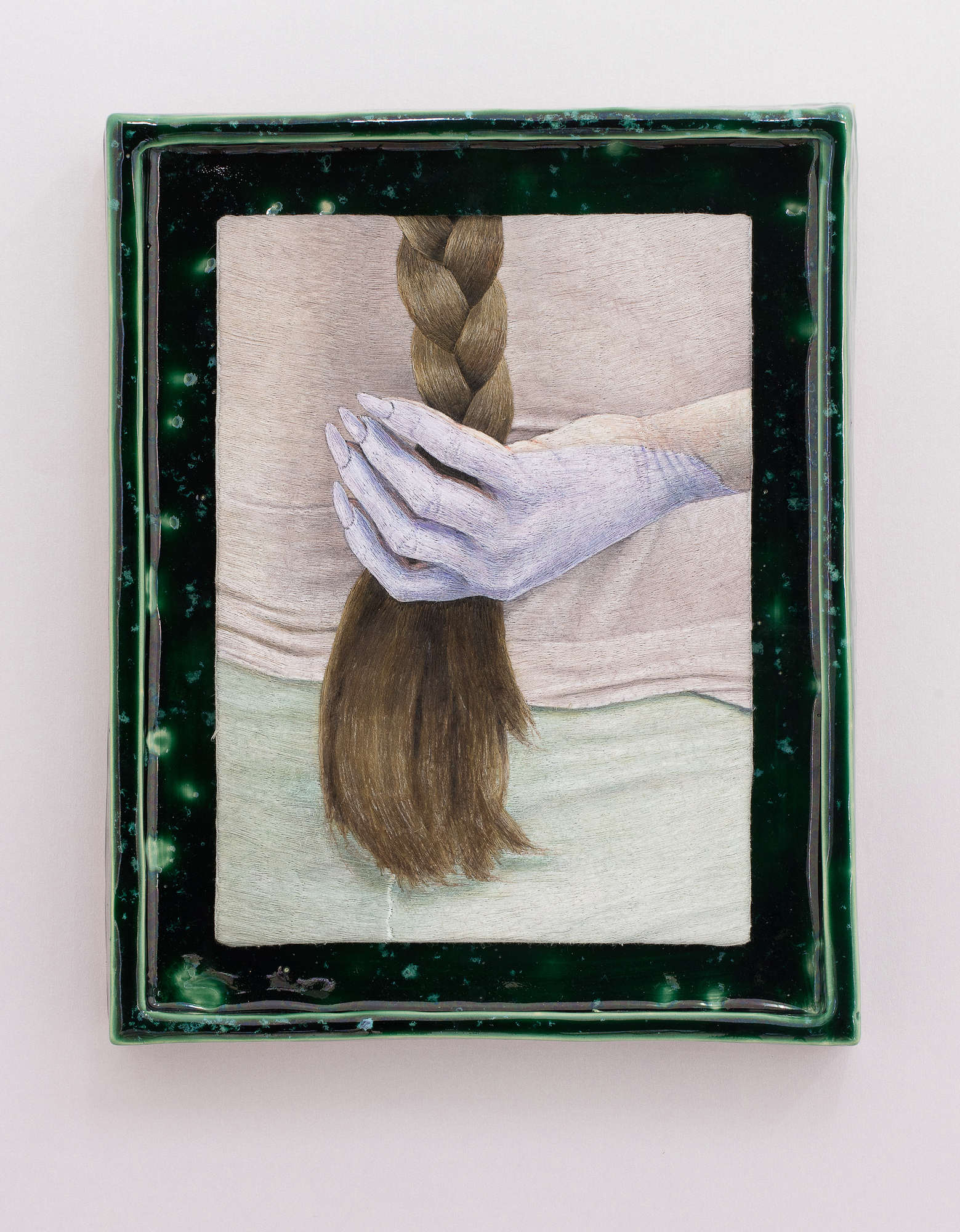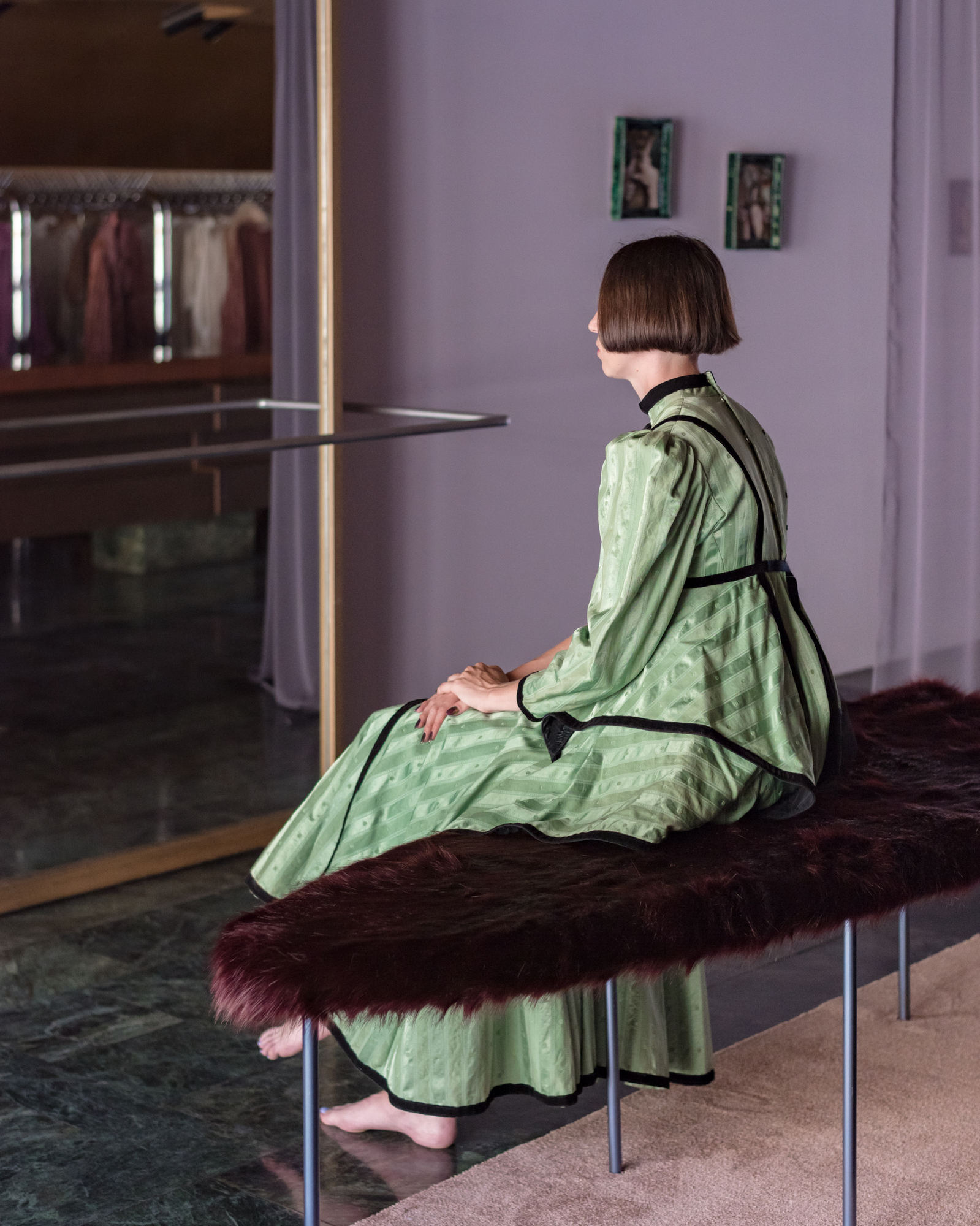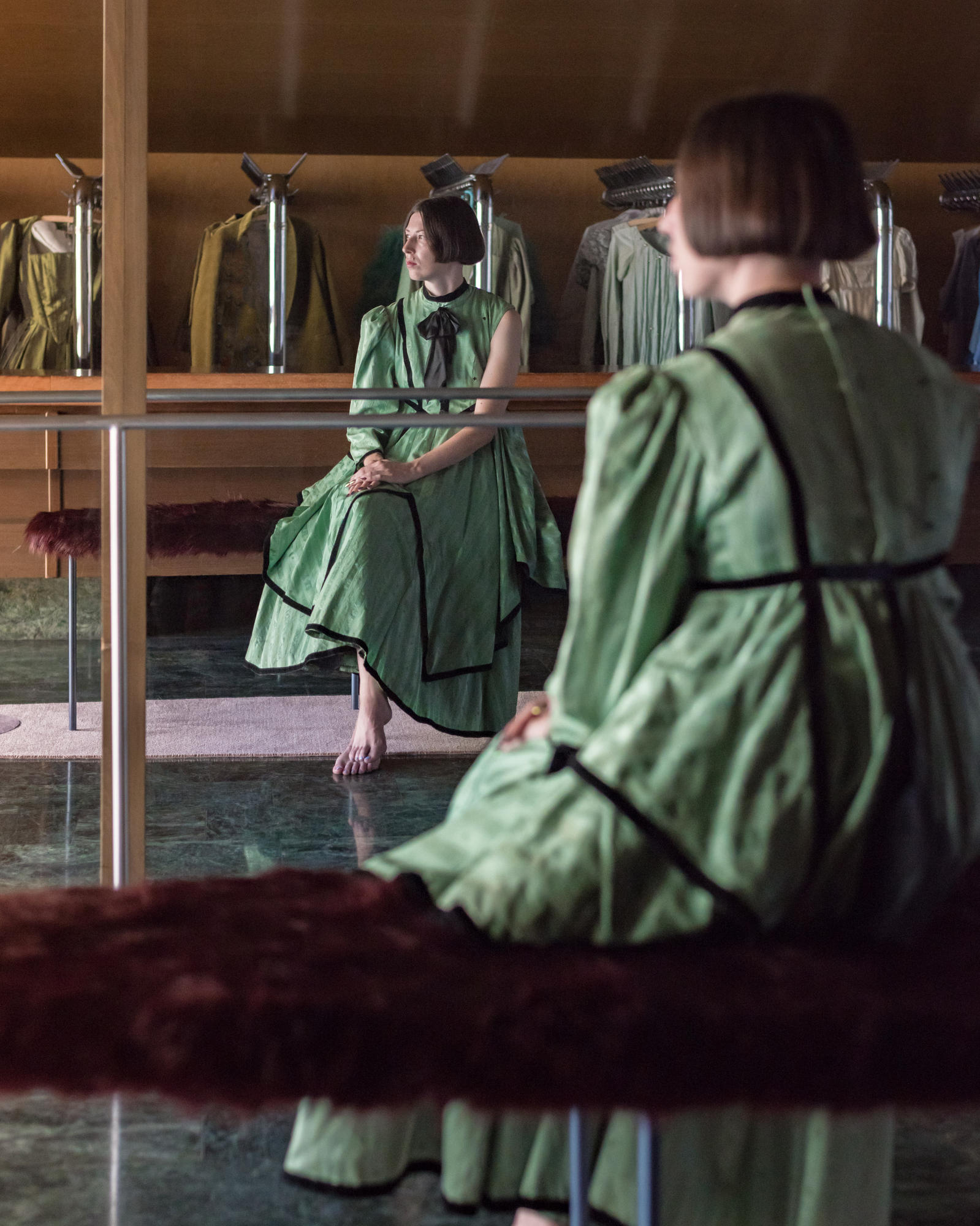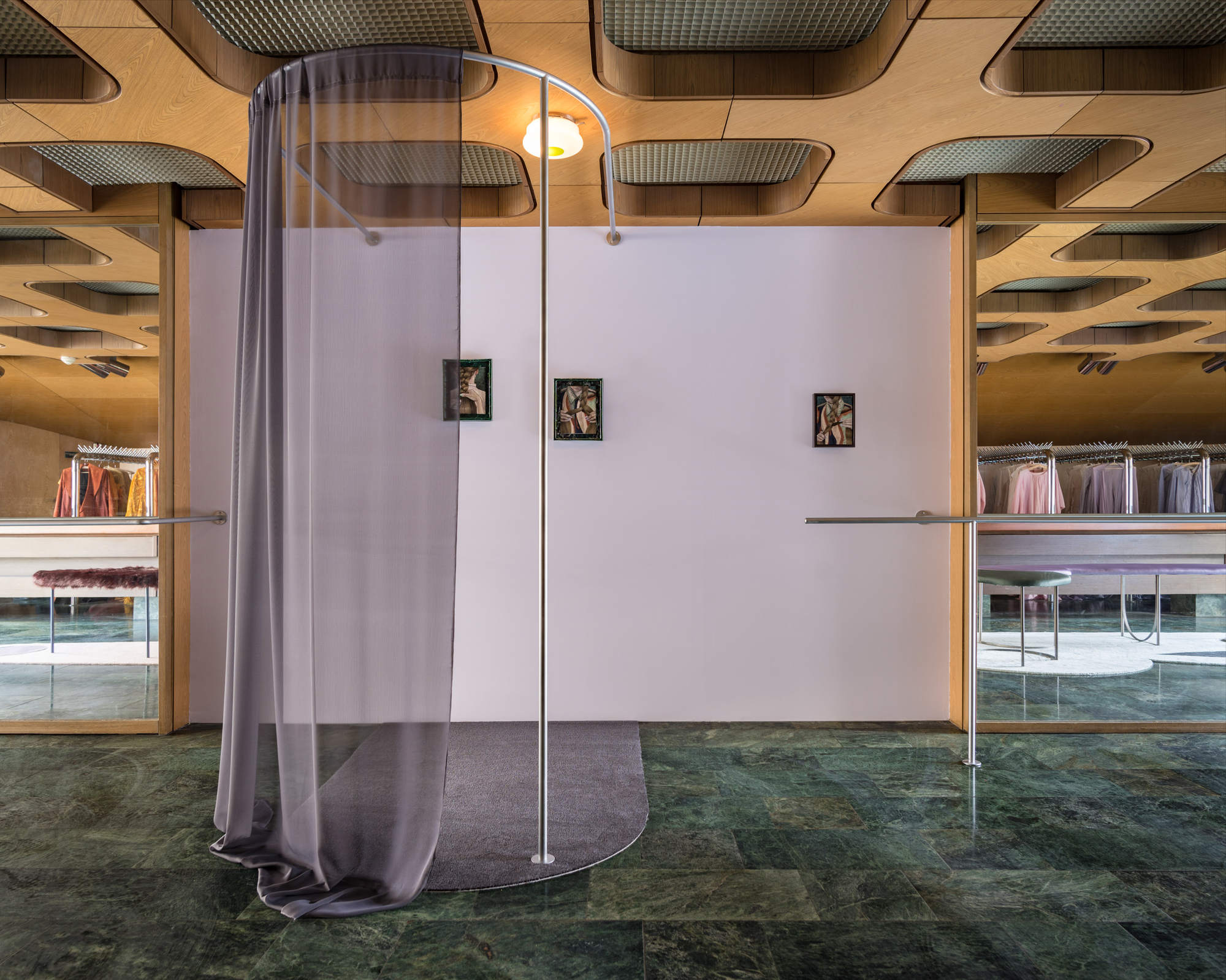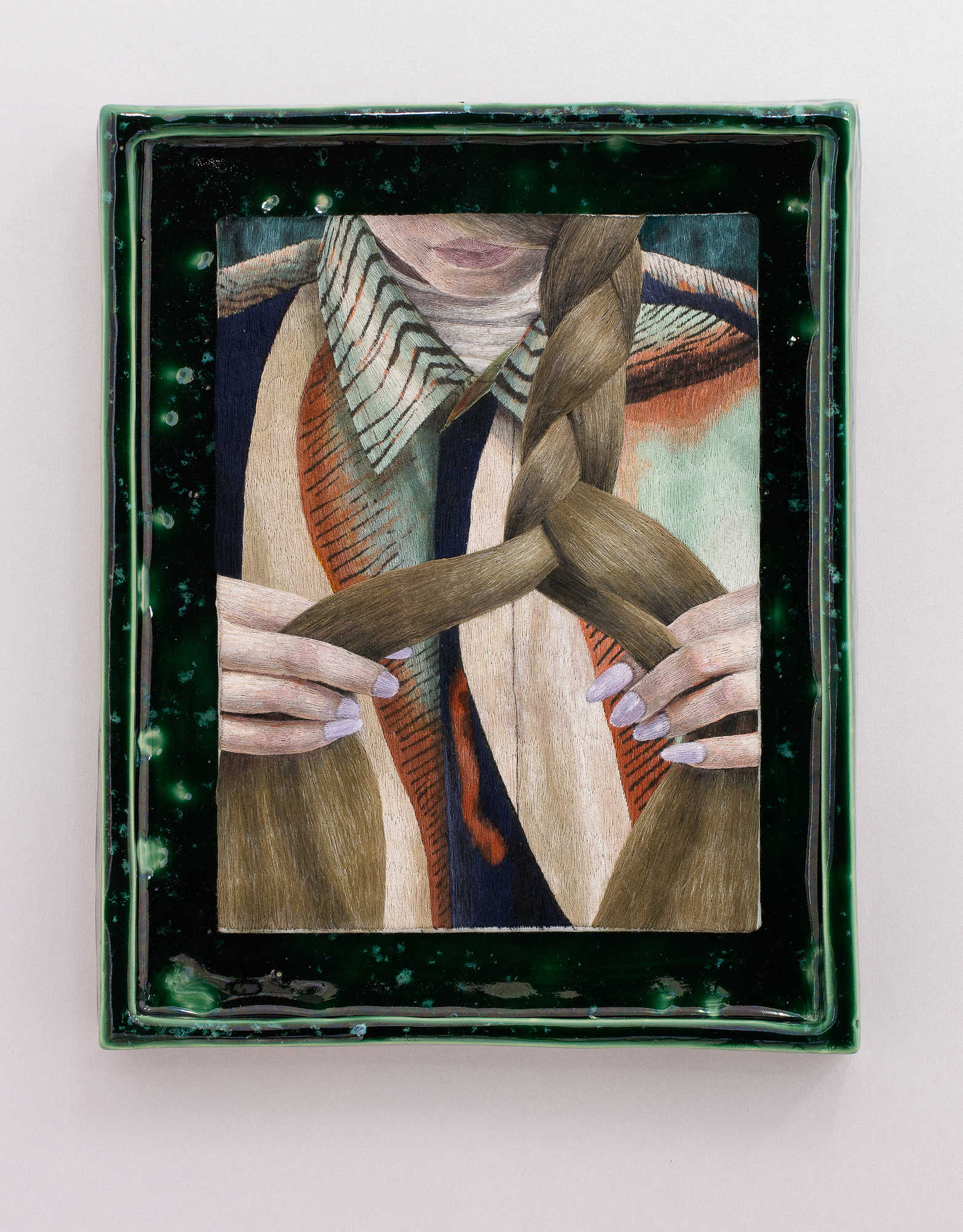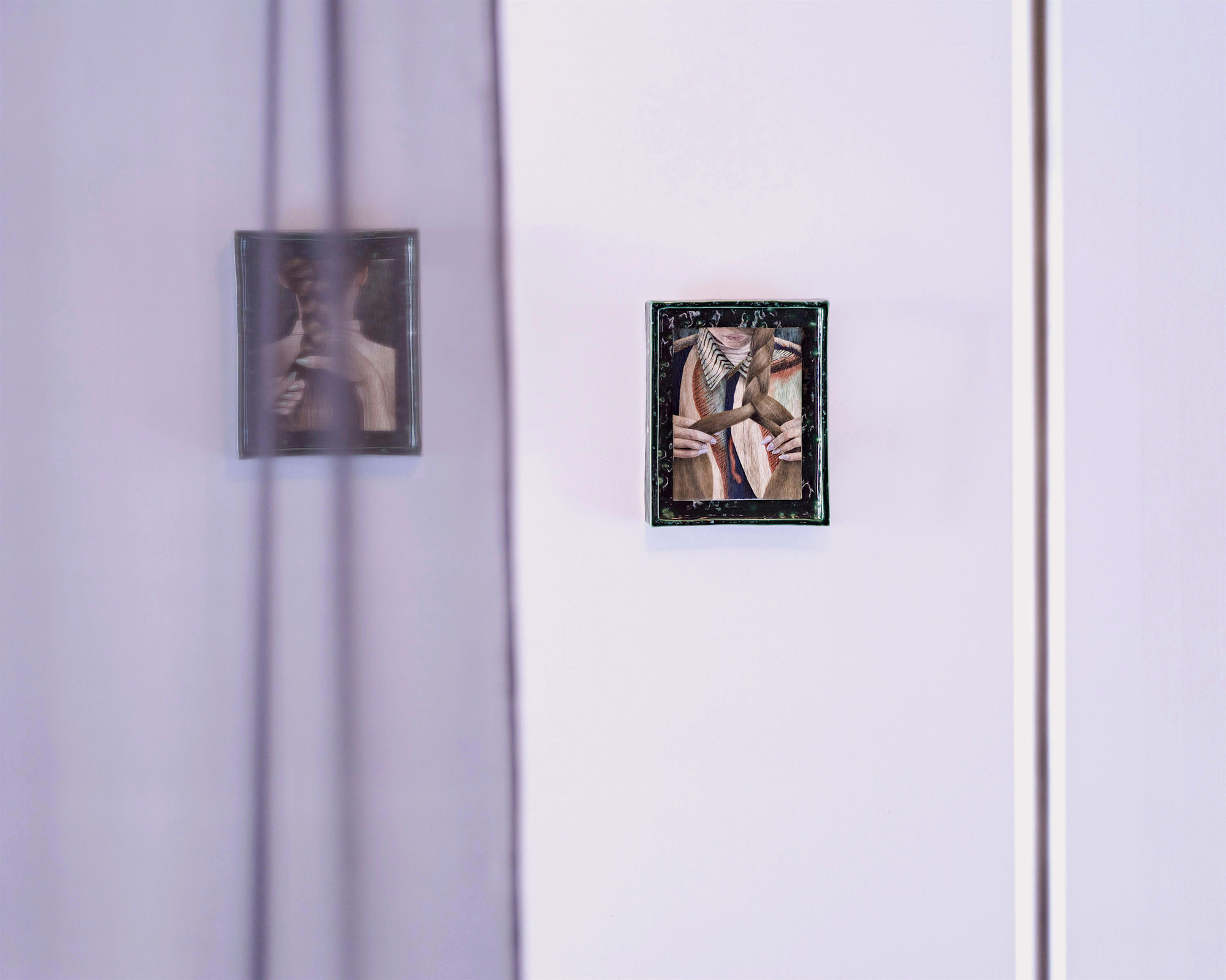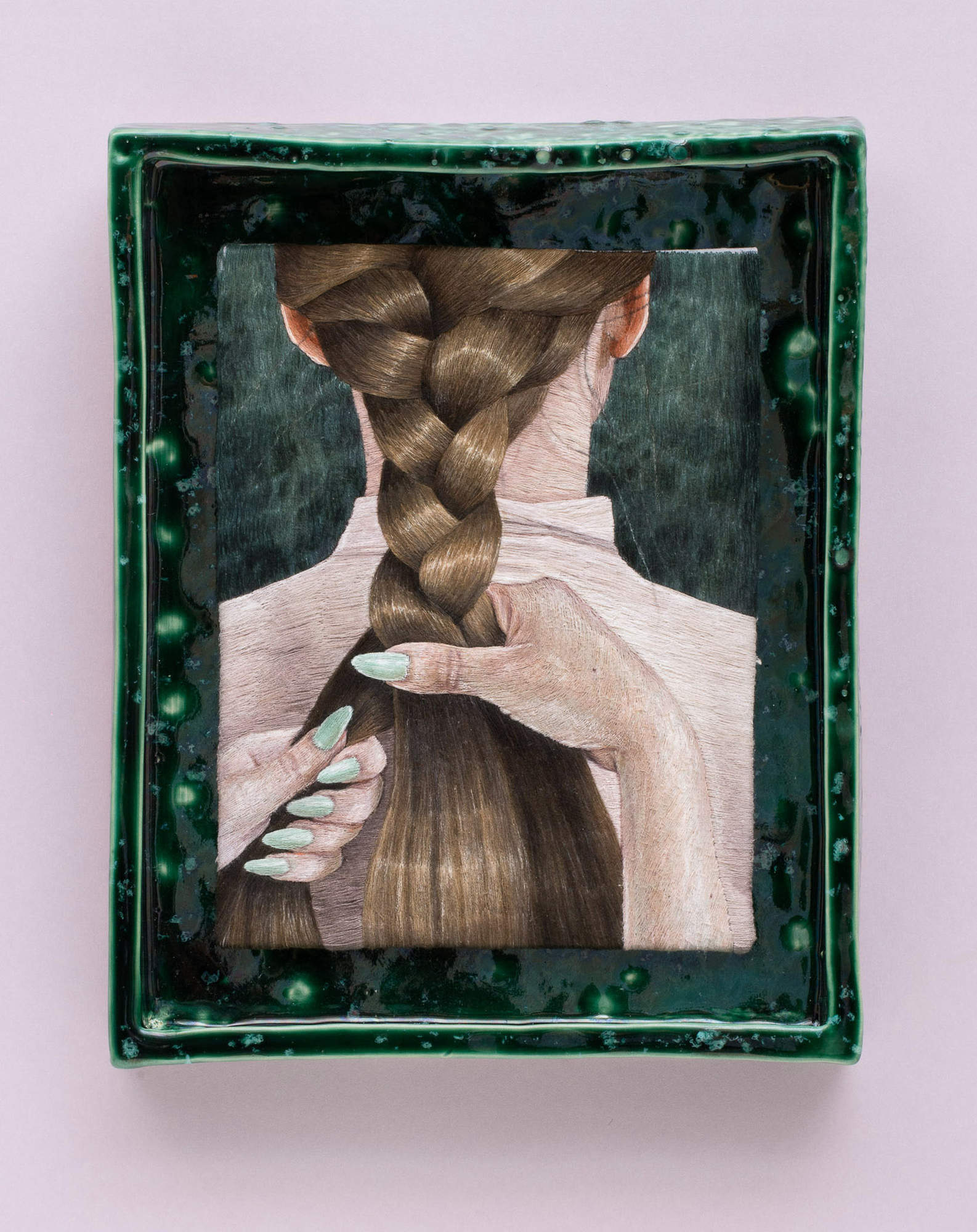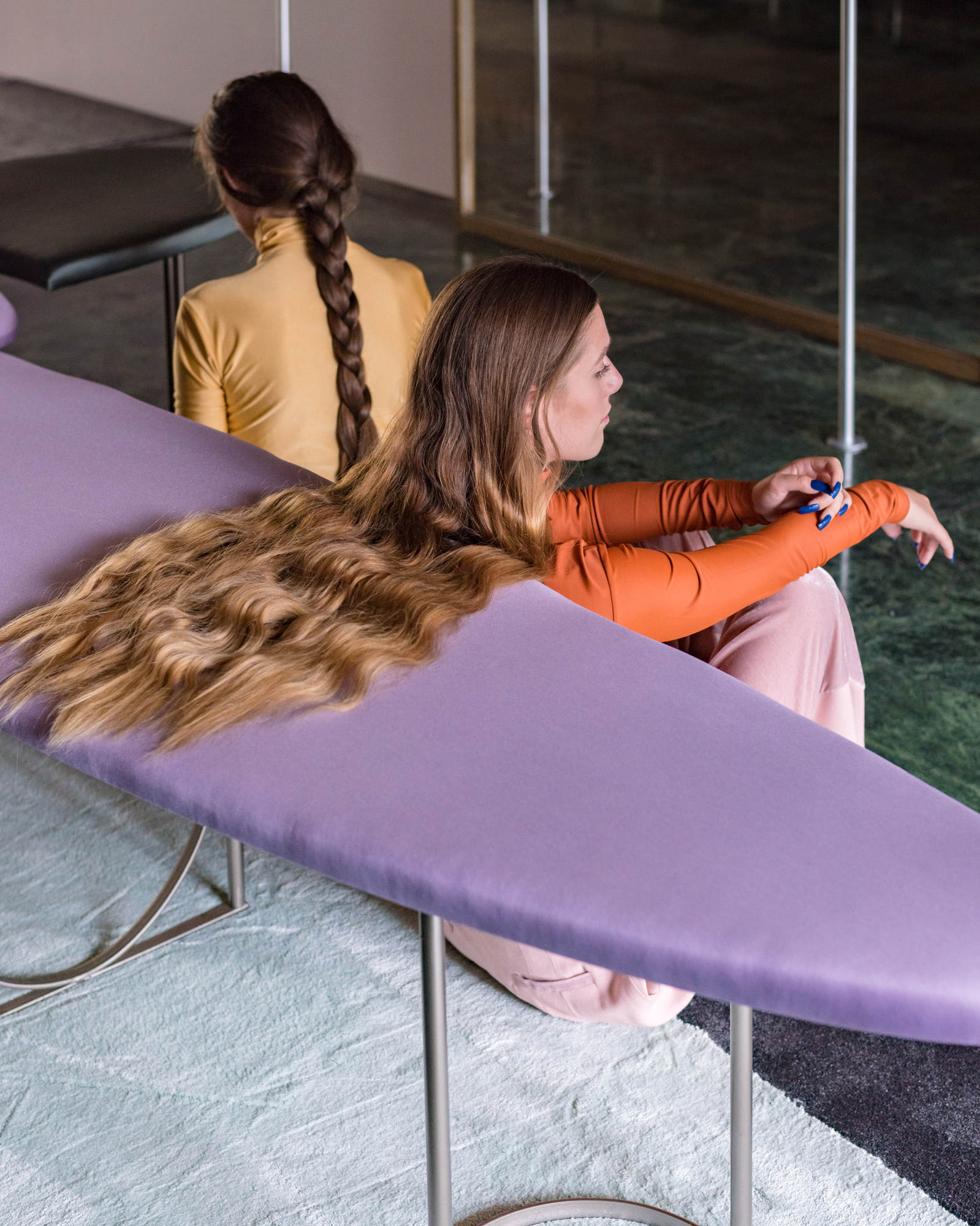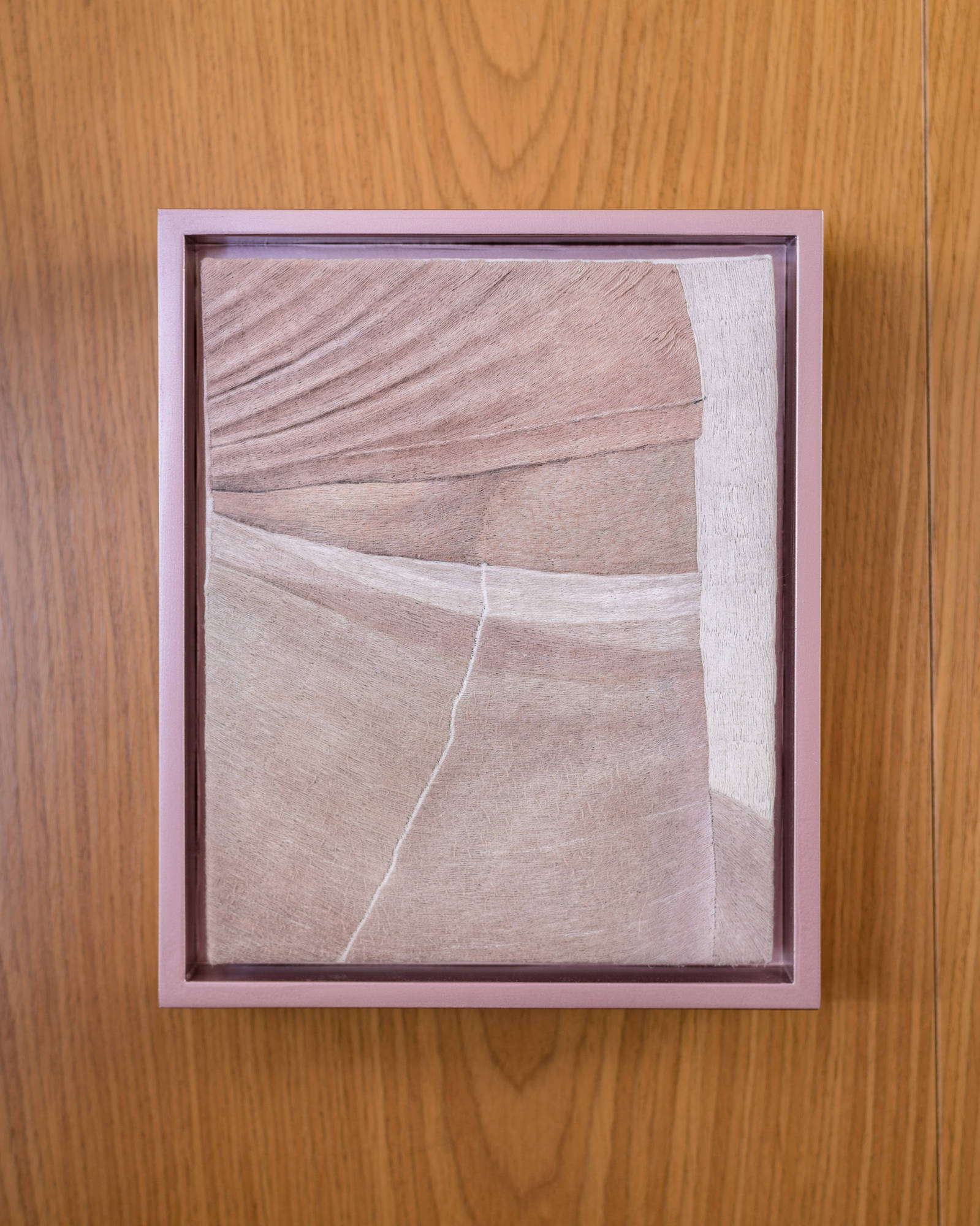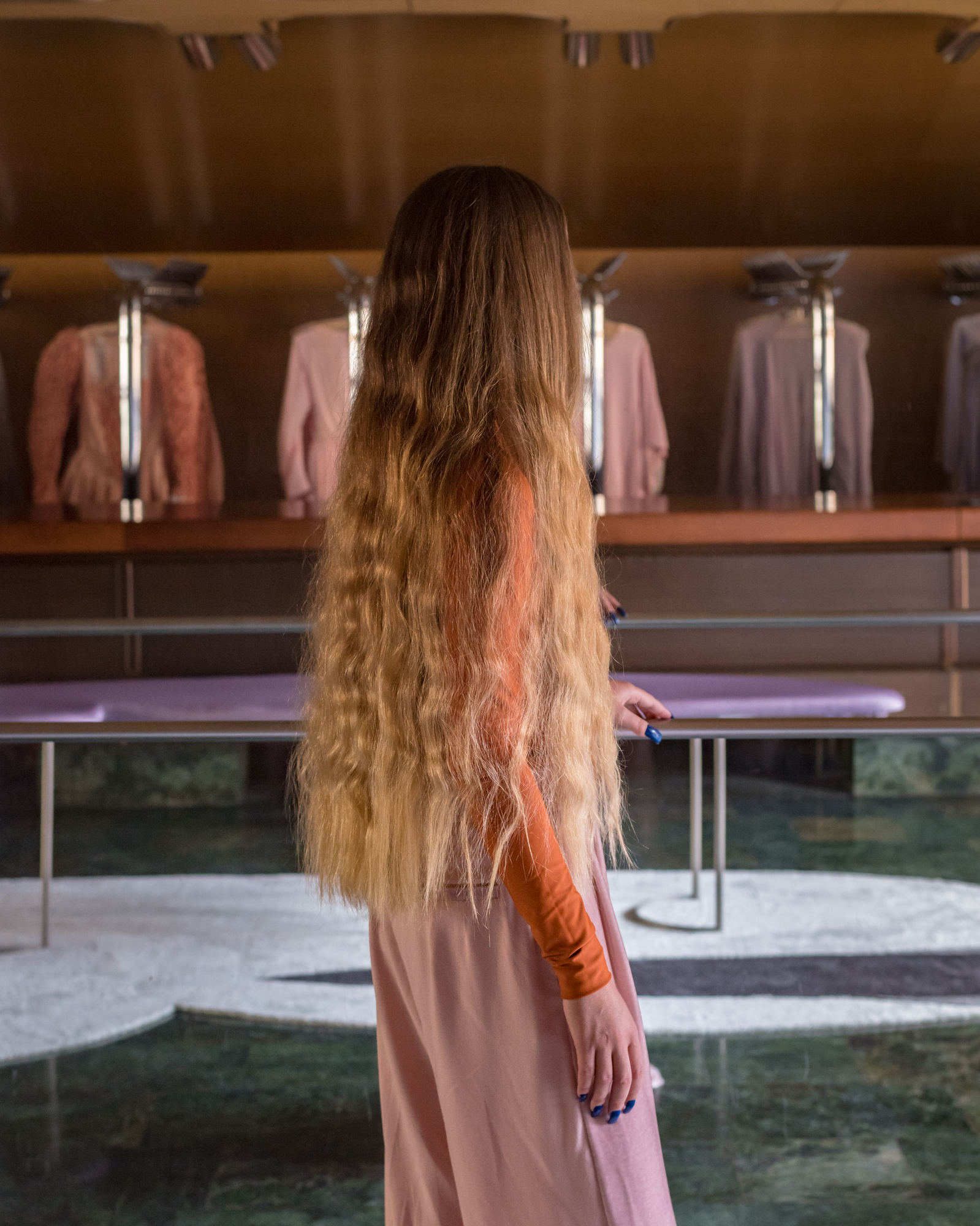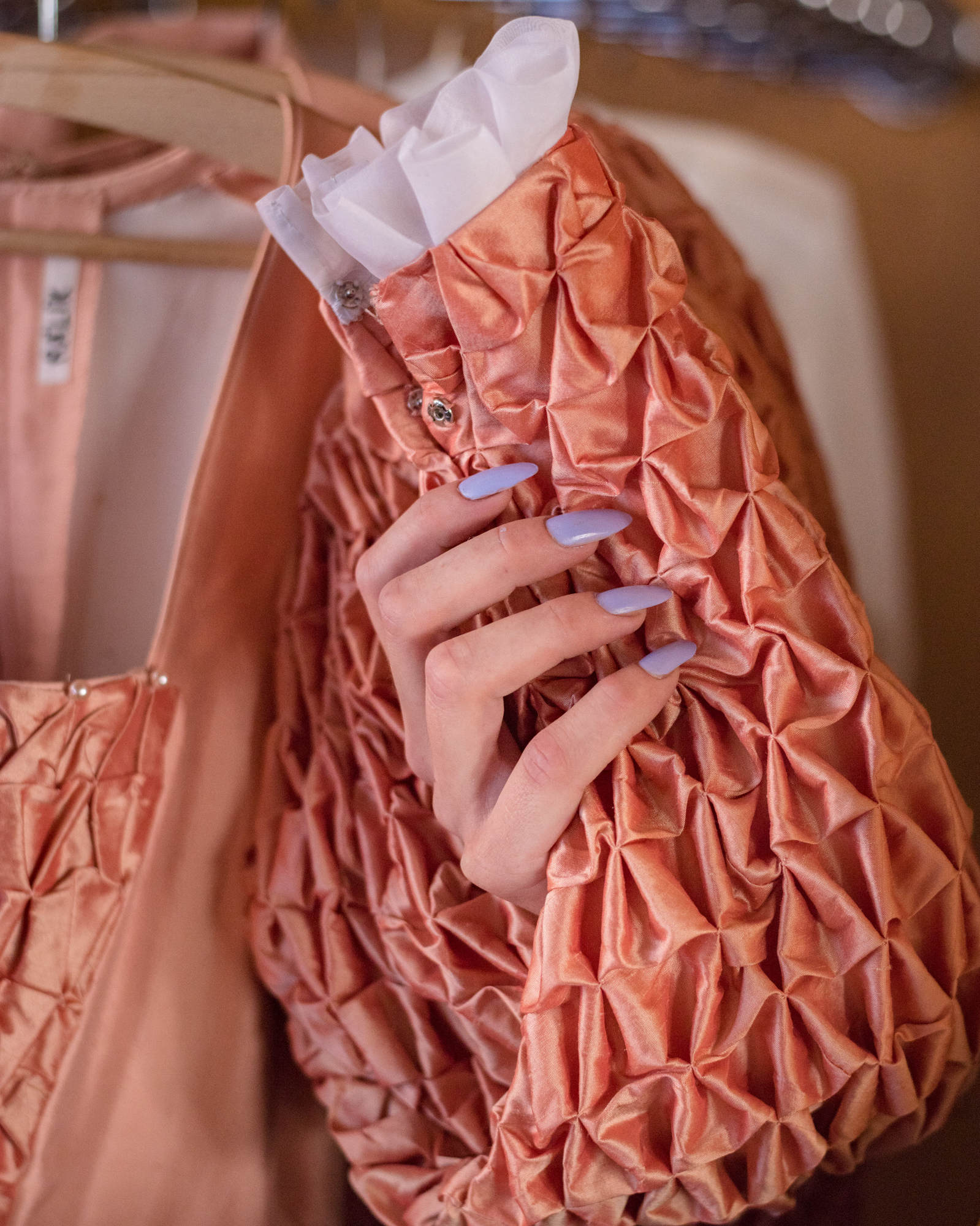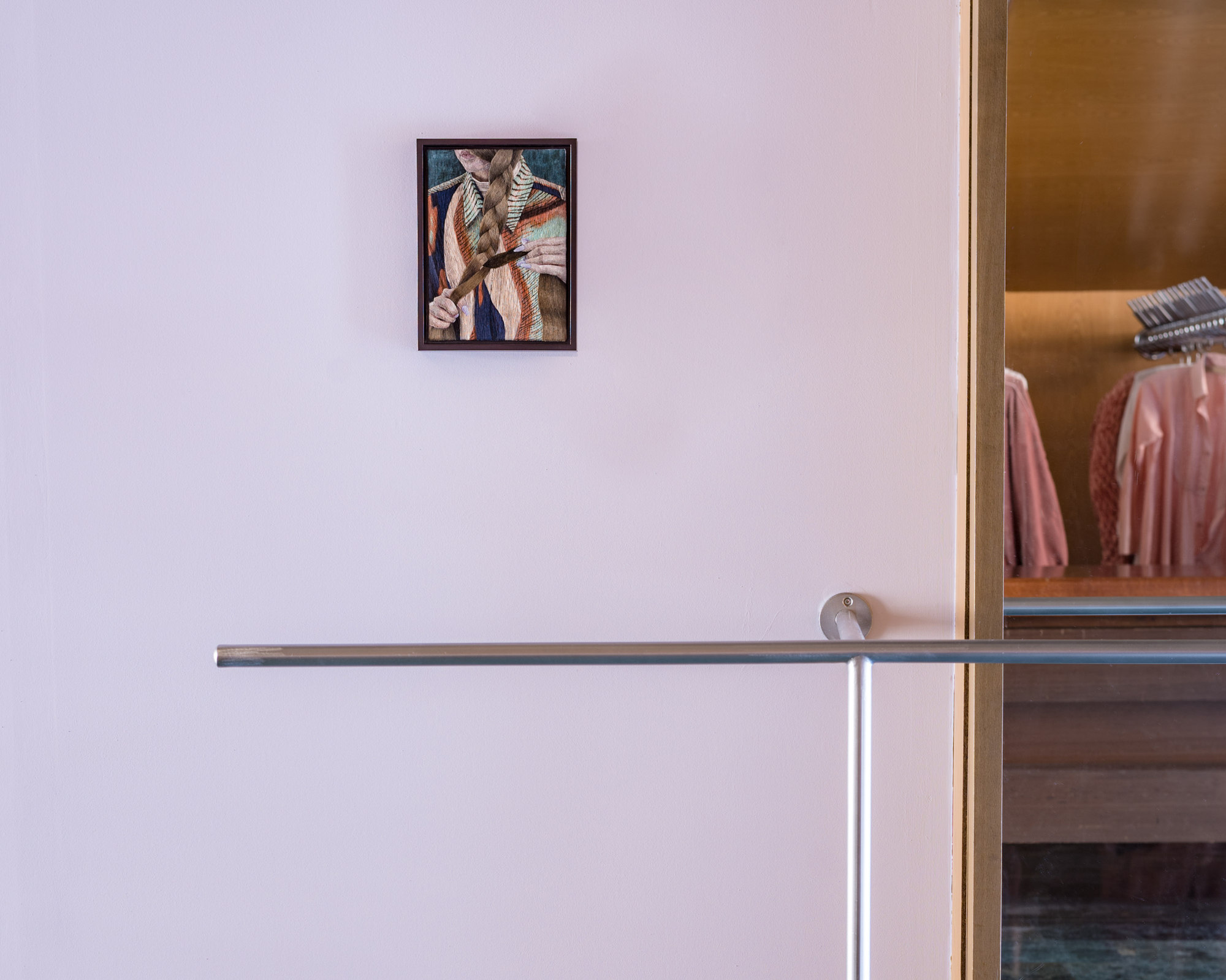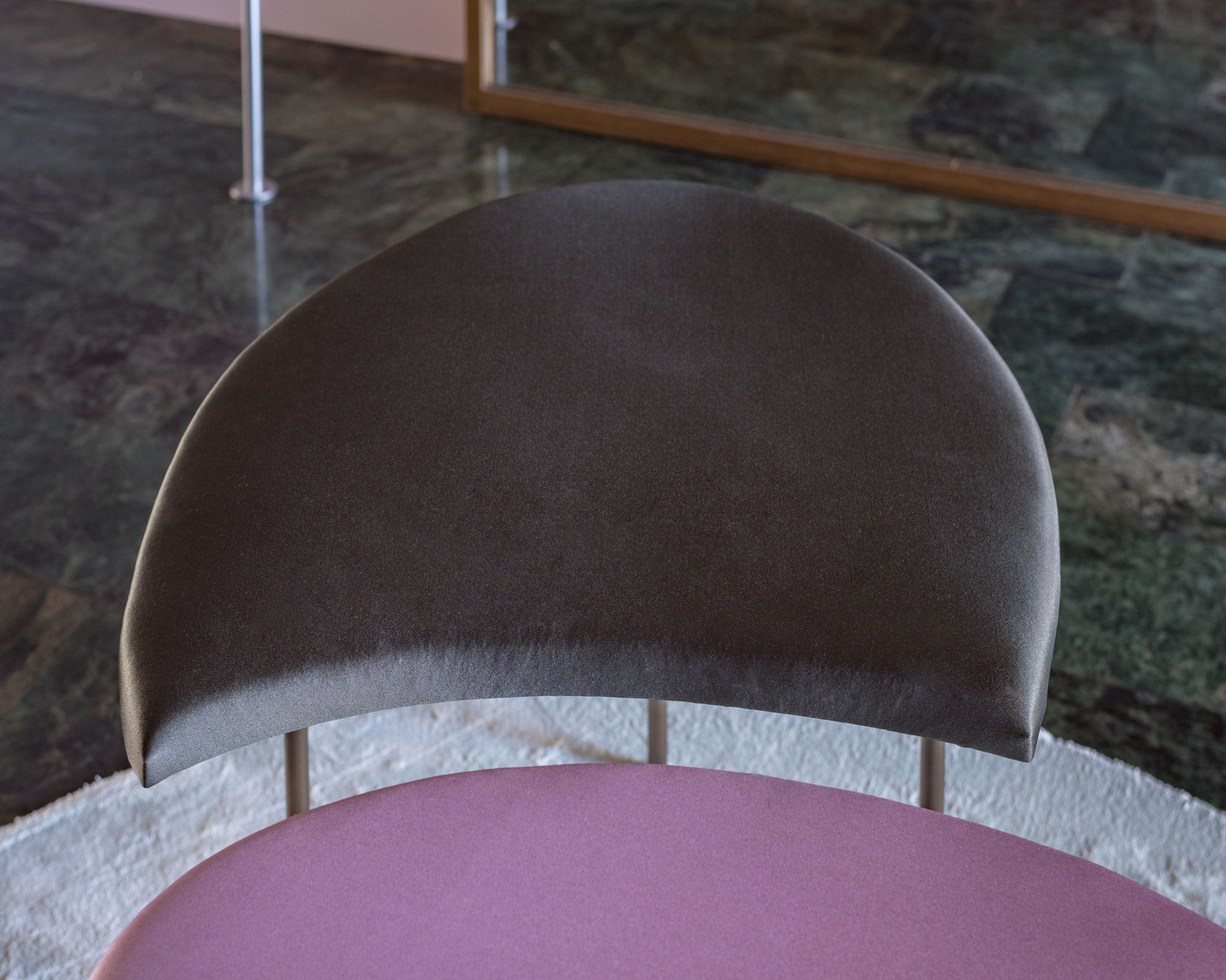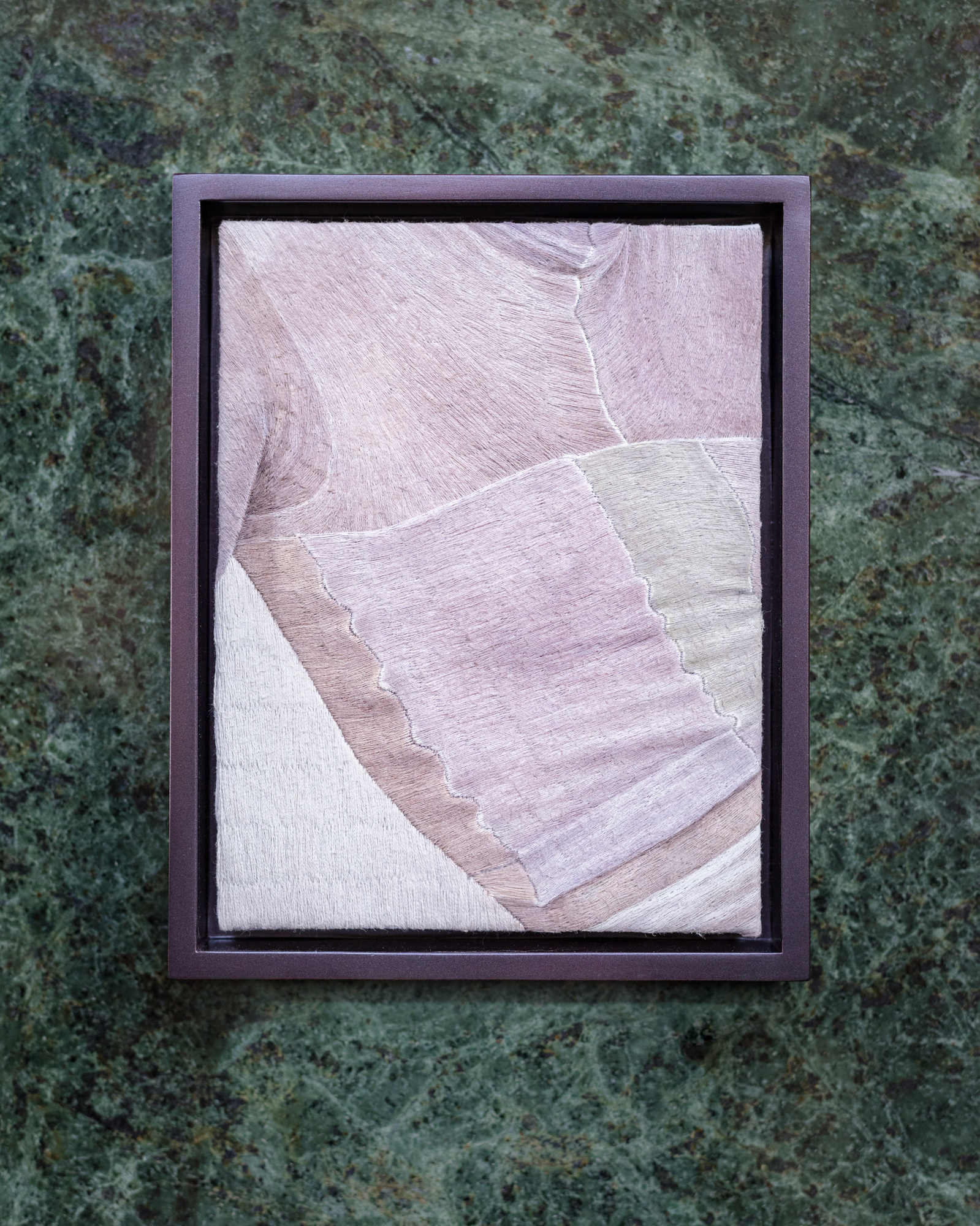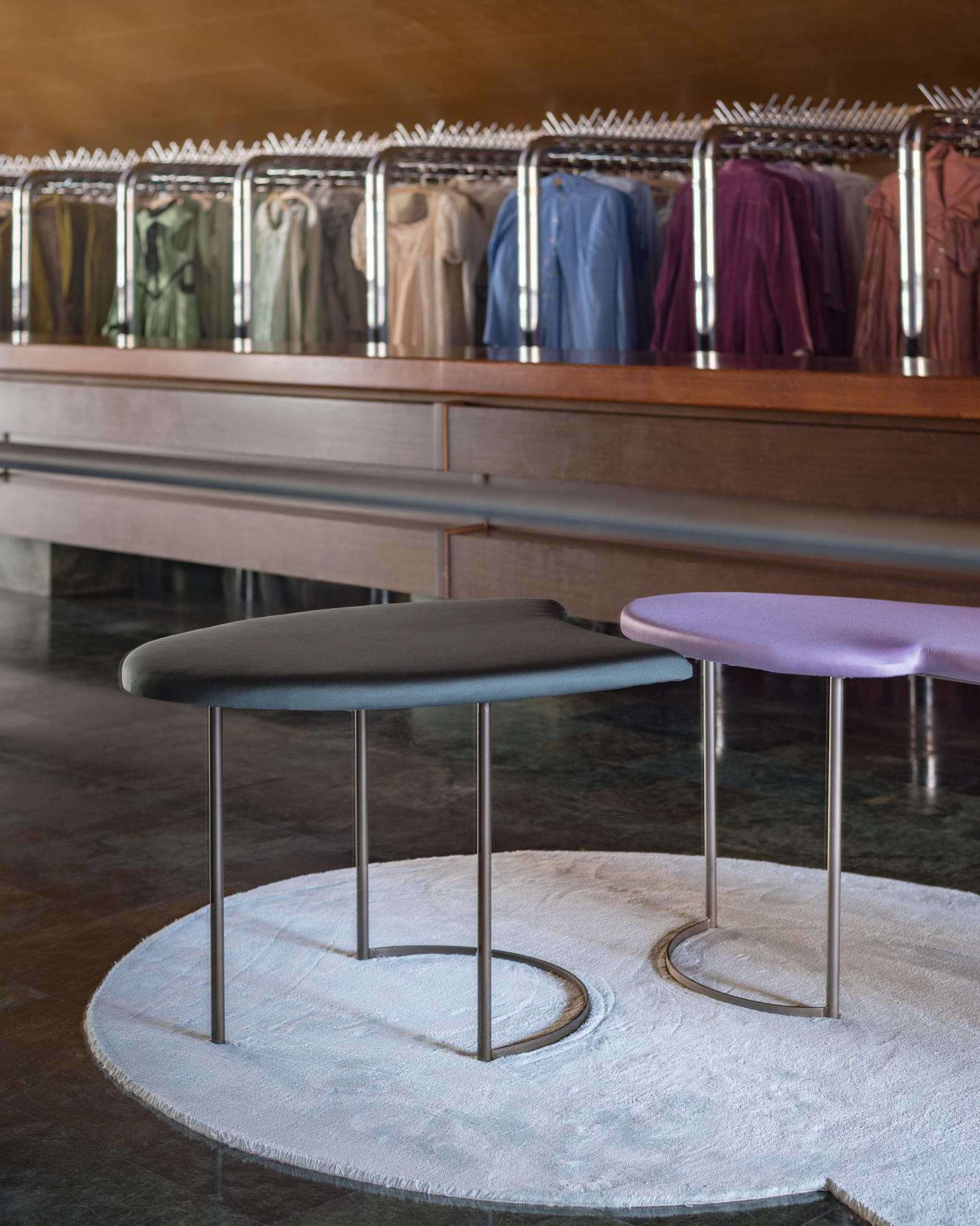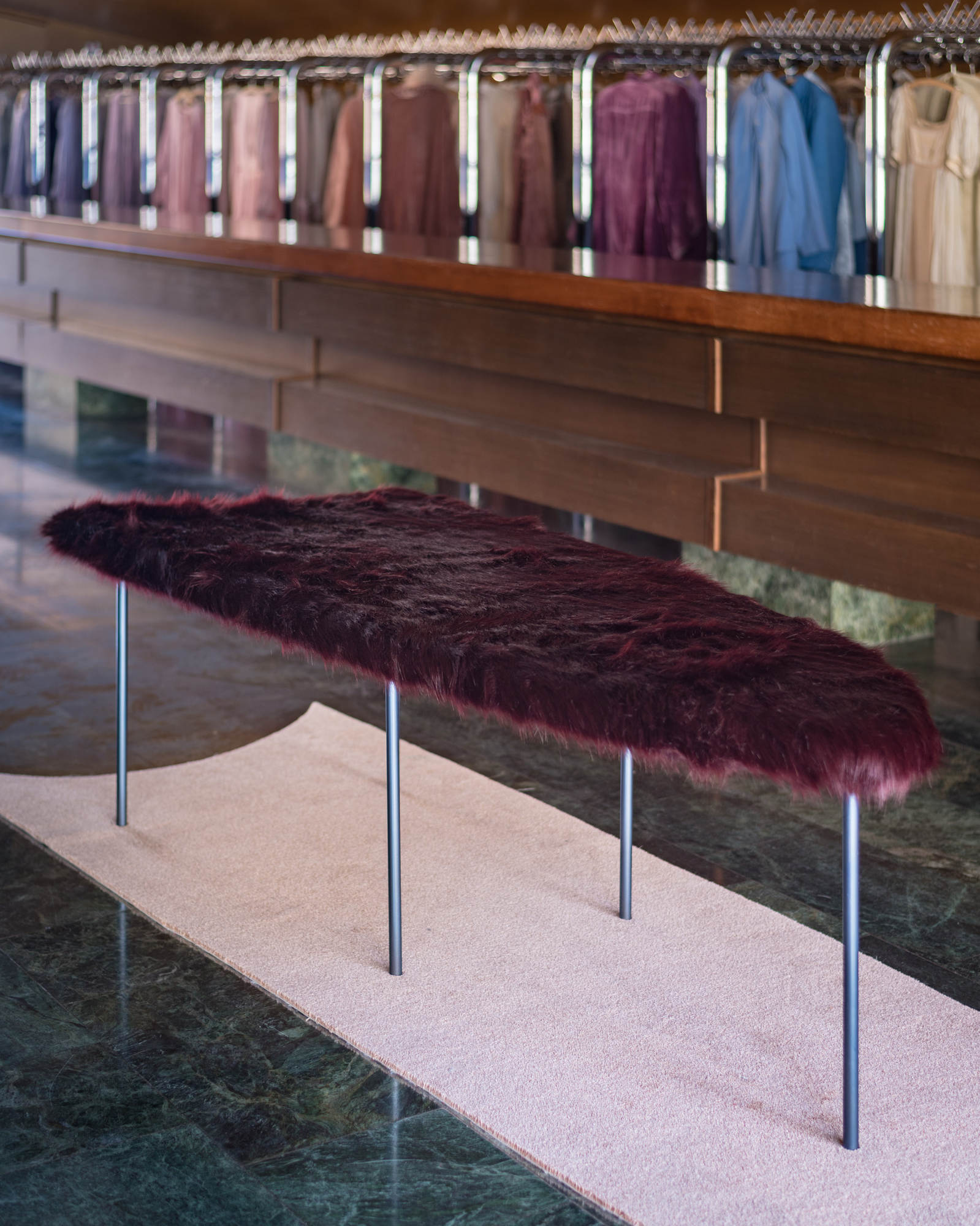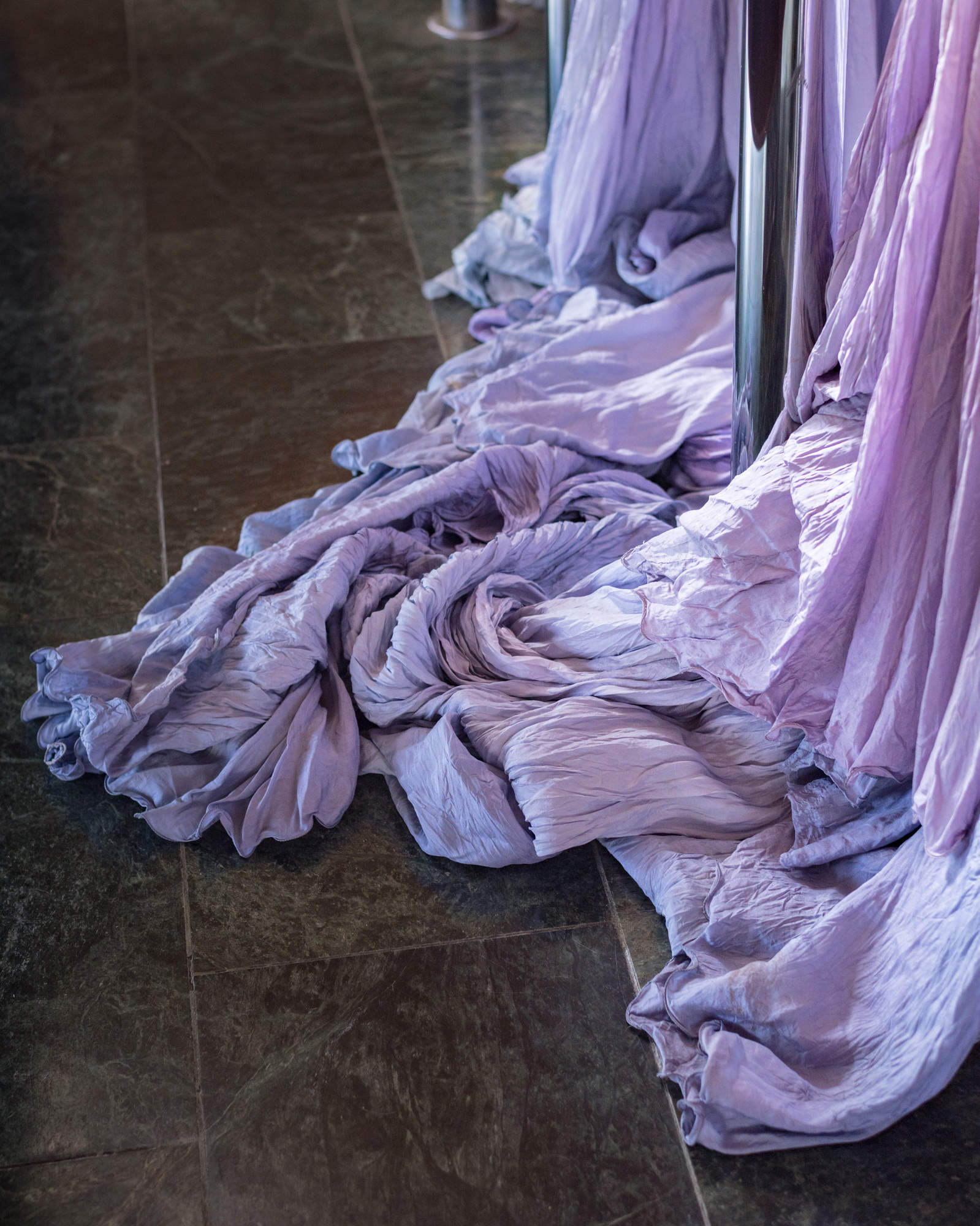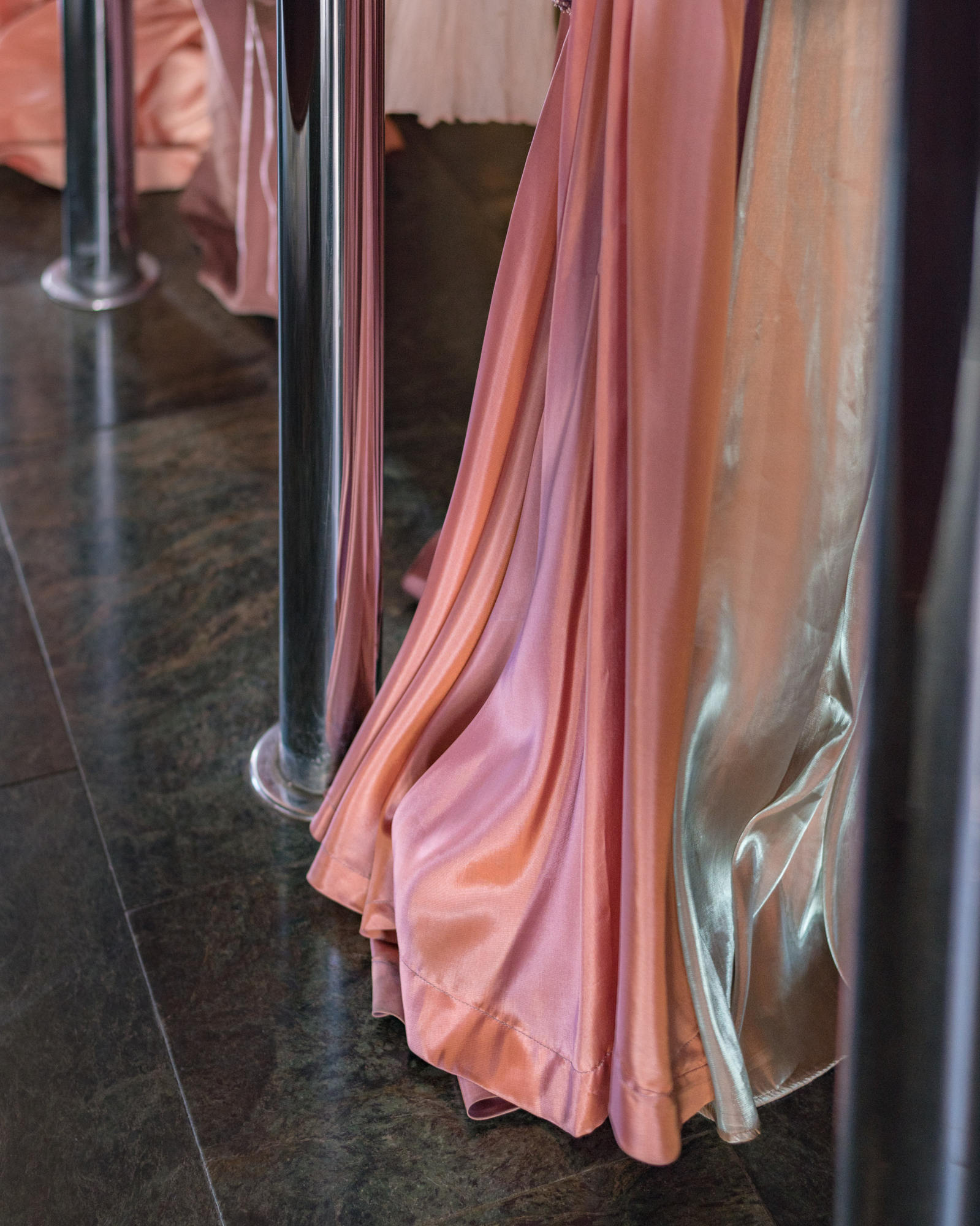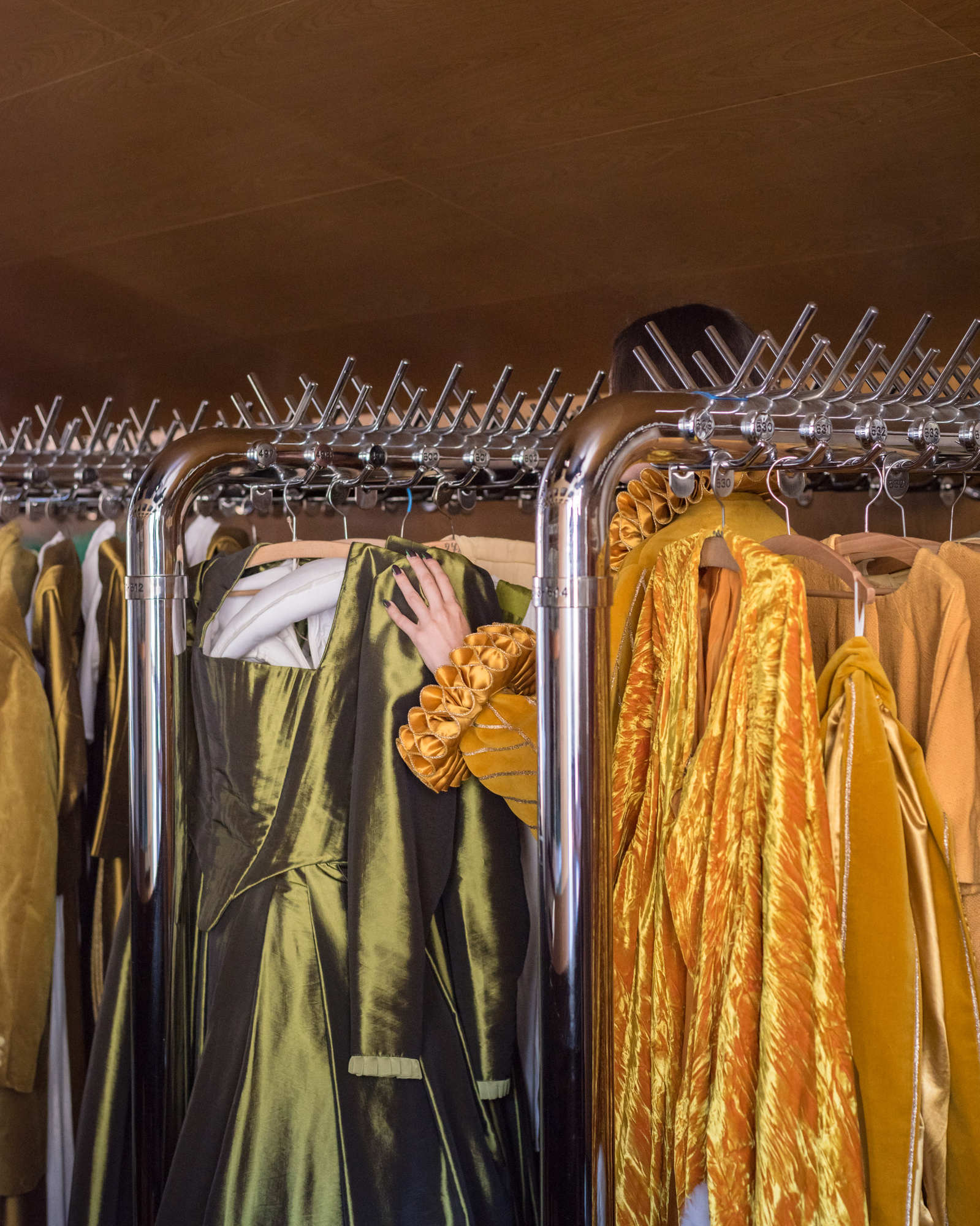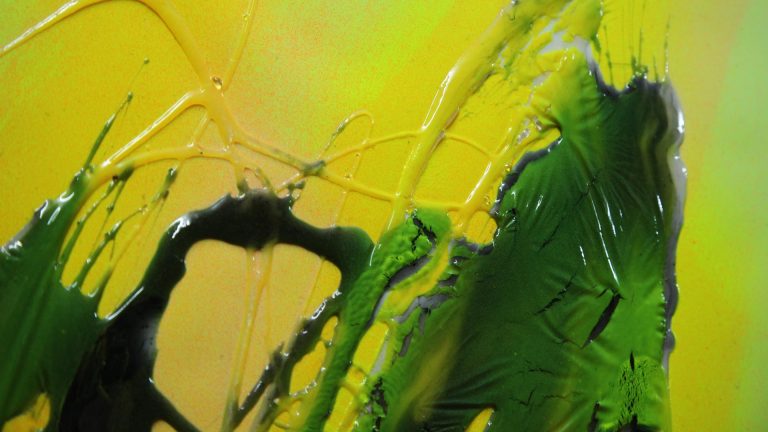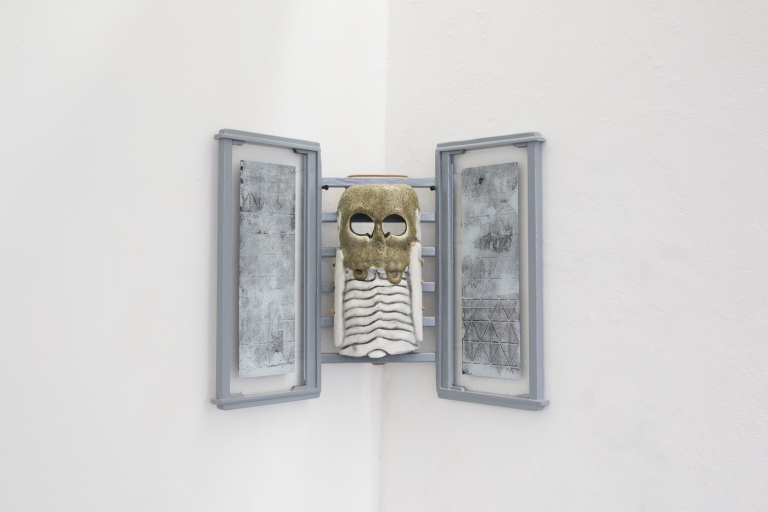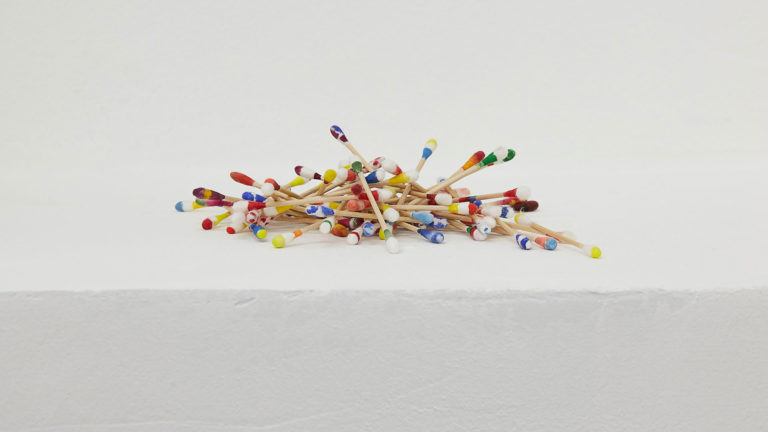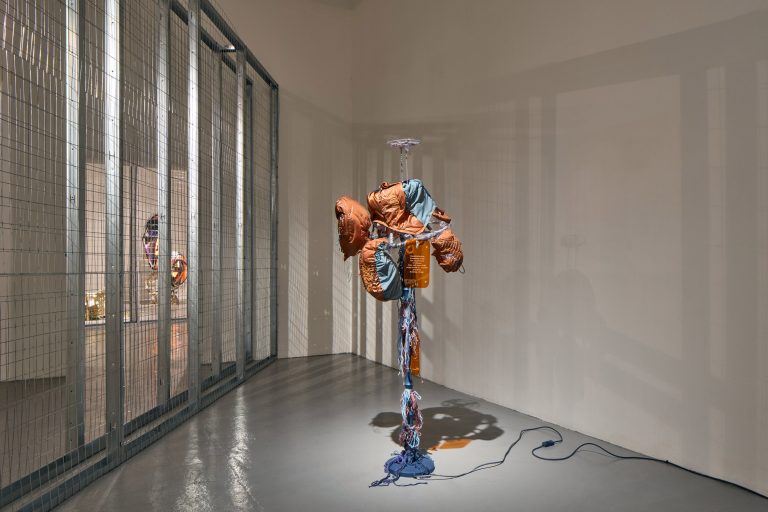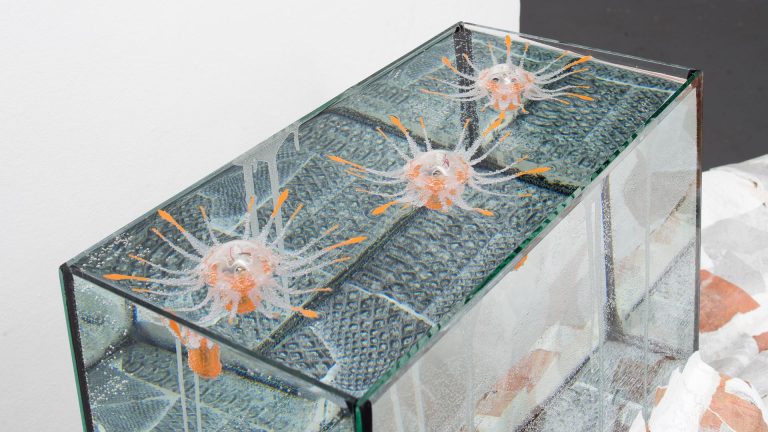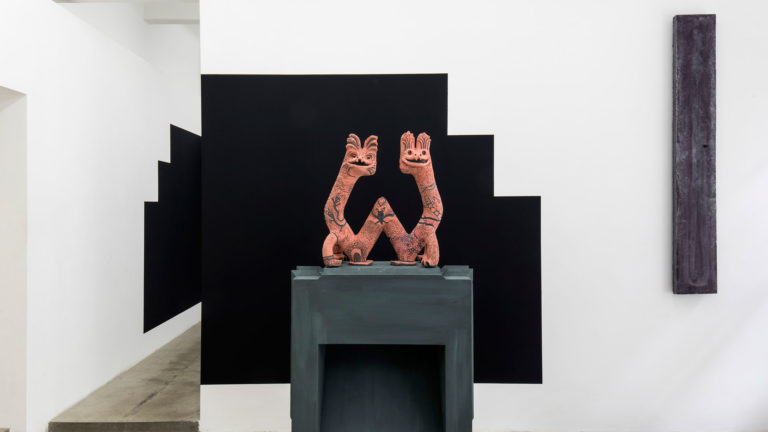Artist: Klára Hosnedlová
Exhibition title: Ponytail Parlour
Venue: National Theatre Prague, Prague, The Czech Republic
Date: August 30, 2018
Photography: all images copyright and courtesy of the artist
Klara Hosnedlova’s Ponytail Parlour is an installation taking place in Prague’s New Stage of National Theatre. The New Stage – or Nová scéna as the locals call it – is the city’s experimental theatre, hosted in an iconic modernist building. Since its construction, it has been home of the city’s National Theatre and the Laterna Magica – the world’s first multimedia theatre, and has been a playground for avant-guard directors and performative practices. Transforming the cloakroom, a space of cross-dressing and identity exchange, into a performative space, Hosnedlova imagines a feminine retreat, a parlour, a place of sensitive dialogue populated by extra-ordinary characters.
Precious motives and complex patterns decor walls and lineary furniture, to create a charged and unique environment where time seems to slow. A selection of costumes from the theatre’s archive, are presented in a group, soft constructed garments unveiling complex narratives and historical profiles. Juliette, Eva, Elettra, Angelica, their identity impregnated in each costume, open the transitional space of the cloakroom as pure potential. A potential for acute catharsis and metamorphosis.
Let us do away with this adherence to history, texts, to written poetry.
History as well as written poetry is valid once and then ought to be torn up. Let dead characters and poets make way for the living.
The figures of two women suddenly appear, long artificial coloured nail brushing the floating hair. Their bodies, silent presence in the space, are styled and devised to aestheticise the everyday. These contemporary women, invited by Hosnedlova, as counterpoint to the iconic – and often submissive- roles performed in the theatre, paint femininity with new traits, pivotal figures beholder of secret wisdoms.
Body close-ups, produced by the artist as hand-made embroidery, act in the space as ghostly memories, collective, yet fragmented representation of a specific moment.
Where are the long nails? We wonder, instinctively looking for signs of their passage, a trace of their wisdom. Where are the curves and loose sensual garments?
Presence is left to imagination, suggesting active possibilities of change: a revolutionary, yet feminine, nova scena. Euripide (480 – 406 BC), the first contemporary dramaturgist, introduced the concept of ordinary people, able to accomplish extraordinary acts, changing the idea of heroes as someone other than ordinary: divine or gifted. Hosnedlova’s Ponytail Parlour also concentrates on ordinary women, pleasuring and confiding to inspire each others. Femininity empowered by the everyday. Can an image support action?
Antonine Artaud considers at length in The Theatre and its double (1938), the power of theatrical enactment on life and its structures, suggesting new forms of theatre inspired by the reality of life. “I am not on the opinion,’ – he writes – “that civilisation must change so theatre can change, but I do believe theatre used in the highest and most difficult sense has the power to affect the appearance and structure of things. And bringing two impassioned revelations together on stage, two living fires, two nervous magnetism, is just as complete, as true, even as decisive as bringing together two bodies in short-lived debauchery is in life.”
Hosnedlova’s cloakroom take-over has affecting power, revealed in the everyday. Conceived as a sensitive yet puissant mise en scène, we encounter the real in the artificial, the hero and anti-hero – magnetic female images tracing new possibilities for encounter and exchange.
Text by Attilia Fattori Franchini




